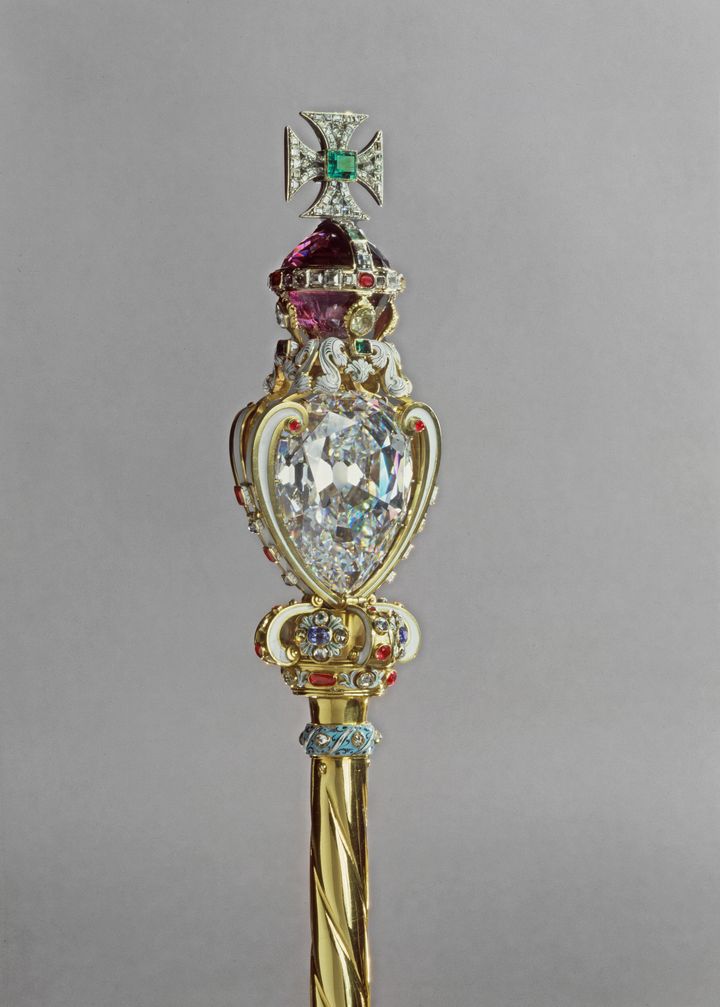The U.K. is ramping up preparations for King Charles’s coronation on Saturday – but there are actually two international rows brewing which could overshadow the celebration.
Though Charles has already been the monarch since his mother died in September, the lavish coronation is meant to honour the start of a new reign.
Aside from speculation about family drama or potential protests, there already seem to be two large problems bubbling – and it doesn’t look like they’re going to go away any time soon.
1. The Crown Jewels
The Crown Jewels drew criticism when they were used for queen’s state funeral, and they are again now as Charles prepares to use them.
The one particular jewel which is causing a stir is the Great Star of Africa, which weighs over 3,100 carats and was discovered in South Africa in 1905.
At the time, South Africa was under British colonial rule so the jewel was presented to the British monarchy by the colonial government.
It was then cut into nine major stones and 96 smaller ones, including the 500-carat Great Star of Africa which was then placed in the royal sceptre (a stone now known as Cullinan I).
But now, some people want it back.
“The diamond needs to come to South Africa. It needs to be a sign of our pride, our heritage and our culture,” lawyer and activist in Johannesburg Mothusi Kamanga, told Reuters news agency.
Kamanga added: “I think generally the African people are starting to realise that to decolonise is not just to let people have certain freedoms, but it’s also to take back what has been expropriated from us.”
More than 8,000 people have now signed a petition asking for the Great Star of Africa to be sent back to its place of origin.
The same giant diamond was used to decorate the Imperial State Crown too, with a smaller (but still immense) jewel being used for the front band of the famous headwear – but it’s the Great Star of Africa which continues to draw the most attention today.
Royal Collection Trust/© His Majesty King Charles III 2023 via PA Media
2. Reparations
As the U.K. sovereign, Charles is also the head of the 56 countries in the Commonwealth, almost all of which are former British colonies.
And as of this week, 12 Commonwealth representatives have sent a statement to the King asking him to acknowledge the impacts and legacy from Britain’s “genocide and colonisation” on the day of his coronation.
They’re also looking for reparations, and for the UK to return stolen artifacts and bodily remains.
The 12 signatories (including Australia, New Zealand, the Bahamas and Canada) are all among the 15 countries which still have the British sovereign as their constitutional monarch.
The statement asks the King to:
- Immediately start the conversation about slavery’s enduring impact
- Begin discussions about reparations
- Repatriate human remains, cultural treasures and artifacts
- Acknowledge and adopt the renunciation of the “Doctrine of Discovery” made by Pope Francis in April 2023. This is a controversial feature of international law meant to justify colonialism which dates back to the 1400s.
One of the representatives, Australian senator Lidia Thorpe, said: “The British monarchy oversaw the oppression of First Nations peoples in British colonies all over the world. The horrific impacts of British colonisation, including the genocide of our people, theft of our land and denigration of our culture, are still felt today.”
It comes after Charles told the Commonwealth heads of government in June 2022 that it was time to discuss the wrongs of the past – and that they were free to leave the British monarchy if they wanted to.
The king also expressed his support for research into the historical connections between the British monarchy and transatlantic slave trade for the first time in April.
Buckingham Palace said at the time the king takes the issues raised “profoundly seriously” and that the royal household will help by allowing access to the Royal Collection and Royal Archives.

